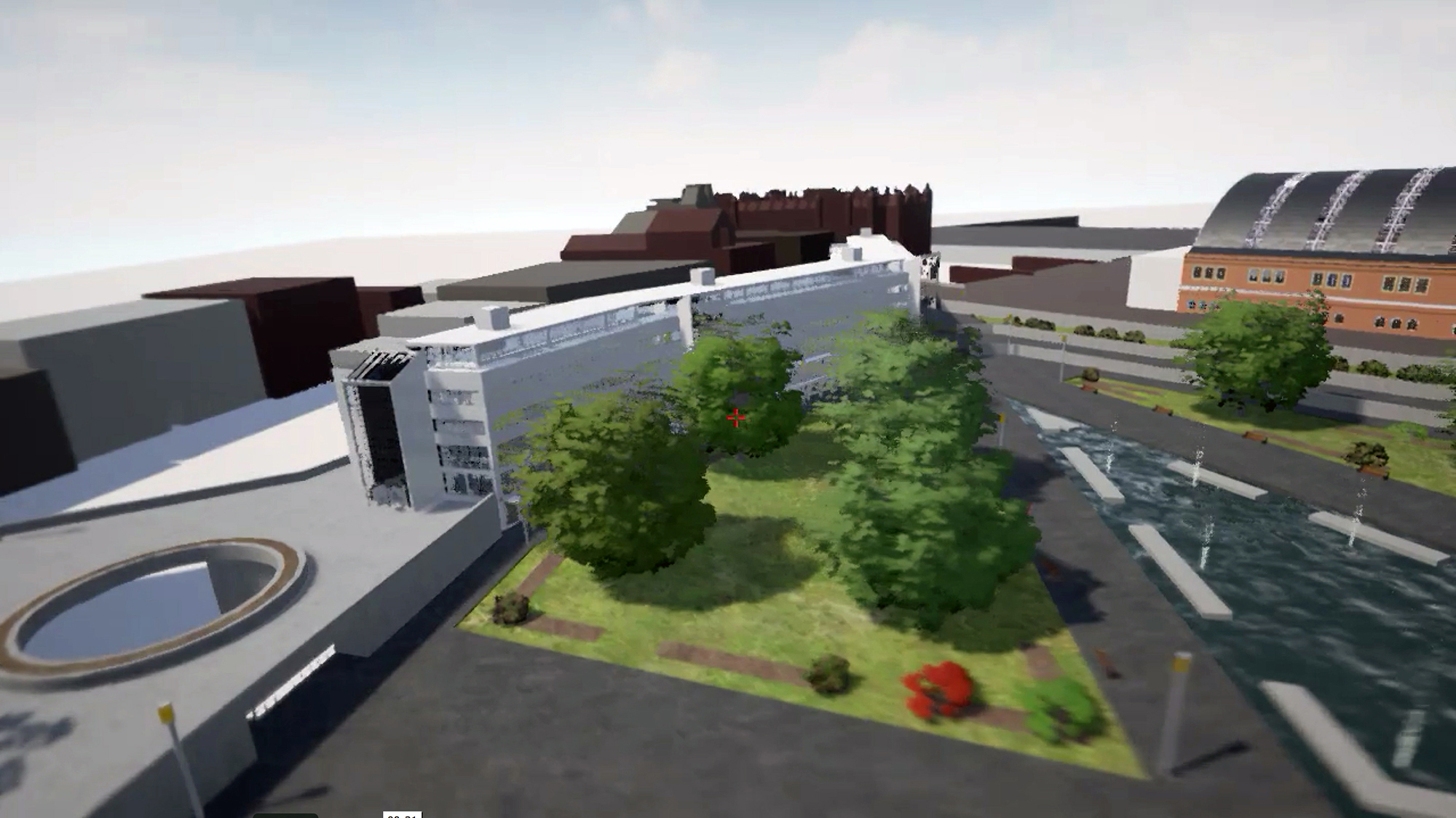News | Friday, 13th May 2016
Making post-war Manchester: visions of an unmade city
New exhibition explores the city that could have been

WE THINK we are familiar with Manchester’s skyline and city centre landmarks. But what about the alternative Manchester that might have been?
During the 1960s a vision of Manchester was being drawn up by property developers and town hall planners that only existed in architects drawings and consultant’s reports and was never realized in concrete and steel.
Manchester was booming and vast swaths of the city centre were scheduled for redevelopment for entertainment, shopping, education, office complexes and transportation. But as with many masterplans, only portions of what was designed were actually built.
“The scale of development was overwhelming, almost the entire city centre was replanned”, says curator Richard Brook, Principal Lecturer at Manchester School of Architecture, noting that “six comprehensive development areas allowed developers to forget the piecemeal approach of the past, and to think big!”
'Unmade city'
In this exhibition, for the first time, visitors will be able to encounter the ‘unmade city’ – the masterplans as they were intended to be. With guidance from the curators, five teams of Masters students from the Manchester School of Architecture have drawn from detailed maps, plans, sketches and archival sources to design and build 3D models of parts of the city that can be navigated using game controllers.
The original visions included wide areas of elevated pedestrian landscapes and sunken dual carriageways carving through the city, heliports, moving pavements and new transport infrastructure. Visitors to the exhibition will be able to walk, run and jump around these recreated visions and imagine the city as it never became.
“It was widely believed that the helicopter would make a big change to commuting in the 1960s”, according to University of Manchester geographer Dr Martin Dodge, “but they proved to be too expensive and too noisy to fly passengers into rooftop helipads.”
According to University of Manchester computer scientist Kevin Tan: “Game environments are becoming more versatile and this project preempts the forthcoming explosion of virtual reality and its wider application in all sorts of areas. Architecture is just one of the subject areas that we are working in.”
Utopian optimism
The five sites are the Cathedral area shopping zone, Central Station, Lower Mosely Street, the Education Precinct down Oxford Rd to the University and a proposed entertainment district between St Peters Square and Piccadilly.
There will be a free walking tour on Saturday, June 11, and a public lecture on Wednesday, June 22. Also on display will be a website that explains the detailed history of each site, what was there before the 1960s, what was planned and what was eventually built. Images of archival material will also be shown to reveal the leading edge urban design of the period in all of its utopian optimism.
“The streets in the sky proposed for all over central Manchester were intended as new, clean and traffic free spaces for the future citizens” says Jack Hale, director of the Modernist Society.
The exhibition has been conceived and curated by Richard Brook, Kevin Tan and Martin Dodge in collaboration with The Modernist Society. Richard is a Principal Lecturer at Manchester School of Architecture, Manchester Metropolitan University, Kevin is a Senior Lecturer in Computer Game Design and Development and Martin is a Senior Lecturer in Geography at the University of Manchester School of Environment, Education and Development. The exhibition will be presented as part of the Manchester Histories Festival 2016.
The exhibition space and launch event are generously supported by Bruntwood. Hawkins\Brown and BDP have sponsored production costs.
Dates: VIP preview – 5.30pm Friday, June 3. General admission June 6 - 24, 9am to 6pm Monday to Friday. Special opening on Saturday 4th June for the Manchester Histories Festival. A walking tour concluding with curatorial discussion will be available on Saturday, June 11.
Venue: Manchester Technology Centre, Oxford Road, Manchester, M1 7ED
Further details can be found at www.modernist-society.org/events/making-mcr




